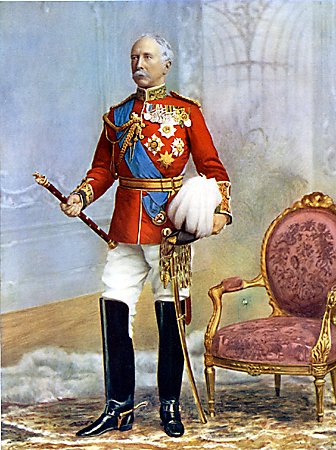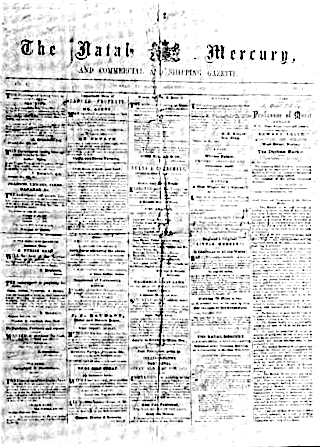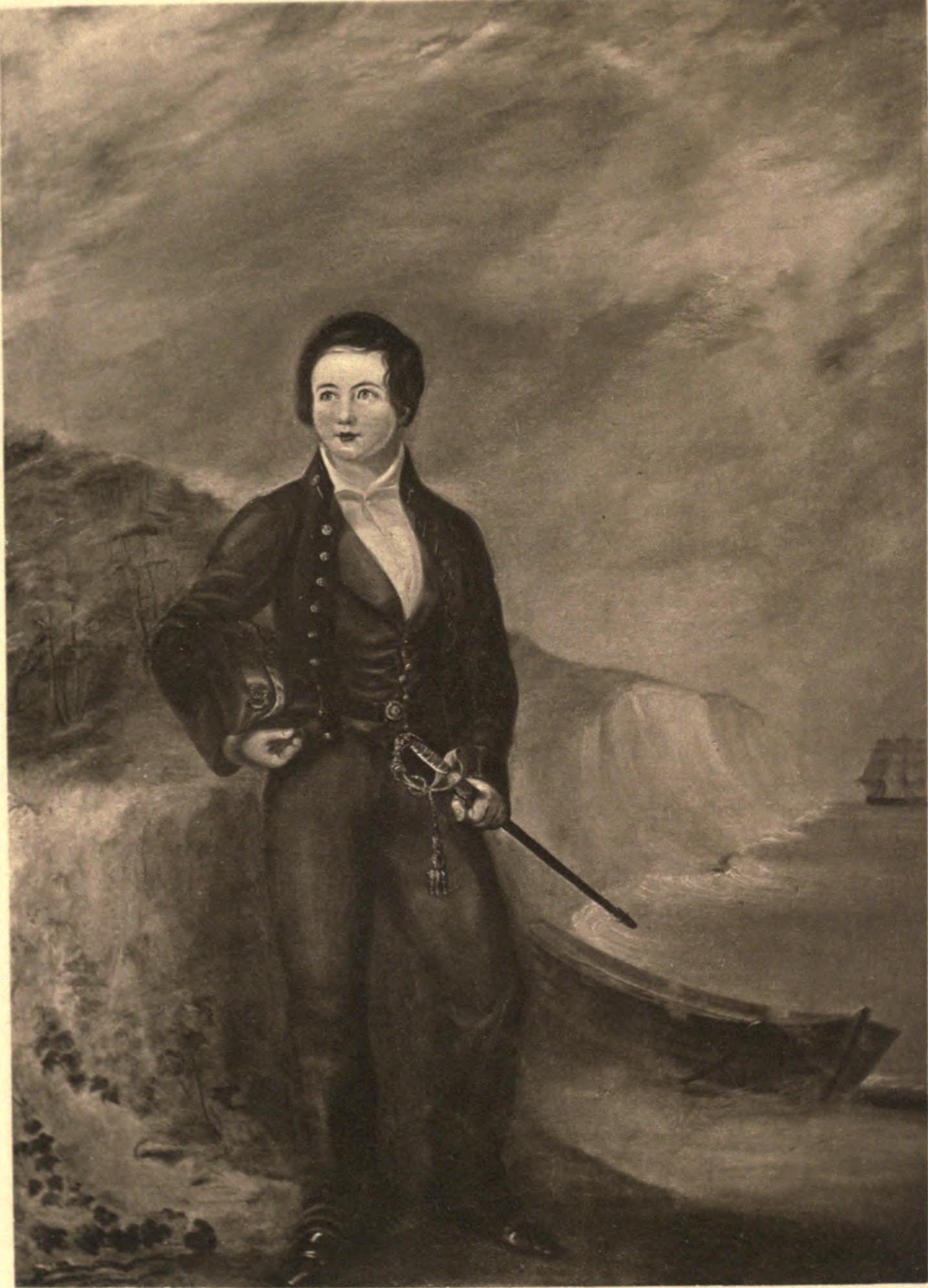|
Henry Cecil Dudgeon D'arcy
Henry Cecil Dudgeon D'Arcy VC (11 August 1850 – 1881) was a New Zealand-born recipient of the Victoria Cross, the highest and most prestigious award for gallantry in the face of the enemy that can be awarded to British and Commonwealth forces. He won the VC on 3 July 1879 at Ulundi in South Africa during the Anglo-Zulu War when he was 28 years old, and a captain in the Frontier Light Horse. Early life D'Arcy was born in Wanganui, New Zealand, where his father Major Oliver Barker D'Arcy (sometimes D'Arcey) of the 65th Regiment was in the British garrison. In 1860, Oliver D'Arcy transferred to the Cape Mounted Riflemen and settled with his family at King William's Town in the Cape Colony. Anglo-Zulu War During the Anglo-Zulu War of 1879, Cecil D'Arcy was an officer in the Frontier Light Horse, a mounted unit of 200 volunteers raised at King William's Town in 1877 by Lieutenant Frederick Carrington. At the Battle of Hlobane on 28 March 1879, his unit acted as the rearguard ... [...More Info...] [...Related Items...] OR: [Wikipedia] [Google] [Baidu] |
Wanganui
Whanganui (; ), also spelled Wanganui, is a city in the Manawatū-Whanganui region of New Zealand. The city is located on the west coast of the North Island at the mouth of the Whanganui River, New Zealand's longest navigable waterway. Whanganui is the 19th most-populous urban area in New Zealand and the second-most-populous in Manawatū-Whanganui, with a population of as of . Whanganui is the ancestral home of Te Āti Haunui-a-Pāpārangi and other Whanganui Māori tribes. The New Zealand Company began to settle the area in 1840, establishing its second settlement after Wellington. In the early years most European settlers came via Wellington. Whanganui greatly expanded in the 1870s, and freezing works, woollen mills, phosphate works and wool stores were established in the town. Today, much of Whanganui's economy relates directly to the fertile and prosperous farming hinterland. Like several New Zealand urban areas, it was officially designated a city until an administrativ ... [...More Info...] [...Related Items...] OR: [Wikipedia] [Google] [Baidu] |
65th (2nd Yorkshire, North Riding) Regiment Of Foot
The 65th (2nd Yorkshire, North Riding) Regiment of Foot was an infantry regiment of the British Army, raised in 1756 as the 2nd Battalion, 12th Regiment of Foot. Under the Childers Reforms it amalgamated with the 84th (York and Lancaster) Regiment of Foot to become the 1st Battalion, York and Lancaster Regiment in 1881.Swinson, p. 165Wickes, pp. 94–95 History Seven Years' War The formation of the regiment was prompted by the expansion of the army as a result of the commencement of the Seven Years' War. On 25 August 1756 it was ordered that a number of existing regiments should raise a second battalion; among those chosen was the 12th Regiment of Foot. The 2nd Battalion of the 12th Regiment of Foot was formed on 10 December 1756 and renumbered as the 65th Regiment of Foot on 21 April 1758. It was sent to the fever ridden West Indies to aid in the capturing of the French islands of Guadeloupe in January 1759 and Martinique in January 1762. It was also involved in the expe ... [...More Info...] [...Related Items...] OR: [Wikipedia] [Google] [Baidu] |
Keiskammahoek
Keiskammahoek (also spelled Keiskamahoek) is a town in the Eastern Cape Province, South Africa. From 1981 until the end of apartheid, the town was part of the Ciskei bantustan. Geography Keiskammahoek is a small rural town that is situated some forty kilometers to the West of King William's Town in the Amahlathi Local Municipality, which is one of seven local municipalities that constitute the Amathole District Municipality, Eastern Cape. Keiskammahoek is surrounded by a number of villages and peri-urban settlements that support the town. Keiskammahoek is situated near the headlands of the Keiskamma River catchment area. It is located in the centre of four different biomes: Albany Thicket, Grasslands, Savannah and Afromontane forest. History The town was once an important commercial centre for the timber and agricultural industries. The settlement of the area since the 1800s also led to the large-scale exploitation and destruction of the natural environment. The timber industry h ... [...More Info...] [...Related Items...] OR: [Wikipedia] [Google] [Baidu] |
The Reverend
The Reverend is an style (manner of address), honorific style most often placed before the names of Christian clergy and Minister of religion, ministers. There are sometimes differences in the way the style is used in different countries and church traditions. ''The Reverend'' is correctly called a ''style'' but is often and in some dictionaries called a title, form of address, or title of respect. The style is also sometimes used by leaders in other religions such as Judaism and Buddhism. The term is an anglicisation of the Latin ''reverendus'', the style originally used in Latin documents in medieval Europe. It is the gerundive or future passive participle of the verb ''revereri'' ("to respect; to revere"), meaning "[one who is] to be revered/must be respected". ''The Reverend'' is therefore equivalent to ''The Honourable'' or ''The Venerable''. It is paired with a modifier or noun for some offices in some religious traditions: Lutheran archbishops, Anglican archbishops, and ... [...More Info...] [...Related Items...] OR: [Wikipedia] [Google] [Baidu] |
Garnet Wolseley
Field Marshal Garnet Joseph Wolseley, 1st Viscount Wolseley, (4 June 183325 March 1913), was an Anglo-Irish officer in the British Army. He became one of the most influential and admired British generals after a series of successes in Canada, West Africa and Egypt, followed by a central role in modernizing the British Army in promoting efficiency. He served in Burma, the Crimean War, the Indian Mutiny, China, Canada and widely throughout Africa—including his Ashanti campaign (1873–1874) and the Nile Expedition against Mahdist Sudan in 1884–85. Wolseley served as Commander-in-Chief of the Forces from 1895 to 1900. His reputation for efficiency led to the late 19th century English phrase "everything's all Sir Garnet", meaning, "All is in order." Early life and education Lord Wolseley was born into a prominent Anglo-Irish family in Dublin, the eldest son of Major Garnet Joseph Wolseley of the King's Own Scottish Borderers ( 25th Foot) and Frances Anne Wolseley (''née'' Sm ... [...More Info...] [...Related Items...] OR: [Wikipedia] [Google] [Baidu] |
Trooper (rank)
Trooper (abbr. Tpr) from the French "''troupier''" is the equivalent rank to private in a regiment with a cavalry tradition in the British Army and many other Commonwealth armies, including those of Australia, Canada, South Africa and New Zealand; it is also used by the Irish Army. In the British Army the Royal Tank Regiment, although not a former cavalry unit also uses the term Trooper as do the Special Air Service and Honourable Artillery Company. Airtrooper (Atpr) is used in the Army Air Corps. Cavalry units are organized into squadrons, further divided into troops, hence a trooper is a member of a troop. "Trooper" can also be used colloquially to mean any cavalry soldier (although not usually an officer). In the United States Cavalry and airborne forces, "trooper" is a colloquialism that has traditionally been used not as a rank, but rather as a general term for any enlisted soldier. Cavalry Troopers are generally considered to be socially a cut above other soldiers. Th ... [...More Info...] [...Related Items...] OR: [Wikipedia] [Google] [Baidu] |
The London Gazette
''The London Gazette'' is one of the official journals of record or government gazettes of the Government of the United Kingdom, and the most important among such official journals in the United Kingdom, in which certain statutory notices are required to be published. ''The Gazette'' is not a conventional newspaper offering general news coverage. It does not have a large circulation. Other official newspapers of the UK government are ''The Edinburgh Gazette'' and ''The Belfast Gazette'', which, apart from reproducing certain materials of nationwide interest published in ''The London Gazette'', also contain publications specific to Scotland and Northern Ireland, respectively. In turn, ''The London Gazette'' carries not only notices of UK-wide interest, but also those relating specifically to entities or people in England and Wales. However, certain notices that are only of specific interest to Scotland or Northern Ireland are also required to be published in ''The London Gazette ... [...More Info...] [...Related Items...] OR: [Wikipedia] [Google] [Baidu] |
No Quarter
The phrase no quarter was generally used during military conflict to imply combatants would not be taken prisoner, but killed. According to some modern American dictionaries, a person who is given no quarter is "not treated kindly" or "treated in a very harsh way". Etymology The term may originate from an order by the commander of a victorious army that they will not quarter (house) captured enemy combatants. Therefore, none can be taken prisoner and all enemy combatants must be killed. A second derivation, given equal prominence in the ''Oxford English Dictionary'' (''OED''), is that quarter (n.17) can mean "Relations with, or conduct towards, another" as in Shakespeare's ''Othello'', Act II, scene iii, line 180, "Friends all ... In quarter, and in termes, like bride and groome". So "no quarter" may also mean refusal to enter into an agreement (relations) with an enemy attempting to surrender. The ''OED'' mentions a third possible derivation but says "The assertion of De ... [...More Info...] [...Related Items...] OR: [Wikipedia] [Google] [Baidu] |
The Natal Mercury
''The Mercury'', formerly ''The Natal Mercury'', is an English-language newspaper owned by Independent Media (Pty) Ltd, a subsidiary of Iqbal Survé’s Sekunjalo Investments and published in Durban, South Africa. Content The paper focuses on the important national and local news of the day, with background and analysis. Its leader and opinion pages offer a platform for a diversity of views and aims to foster informed debate. The daily Business Report within ''The Mercury'' contains news on international market trends, and national company and business news. Weekly supplements include the GoodLife, Motoring, and Network. Network (on Wednesday) specifically focuses on KZN business, property and shipping news. The Zululand and Pietermaritzburg areas are specifically covered within Network. ''The Mercury'' includes dedicated golf pages on Tuesday. ''The Mercury'' also contains local entertainment and arts news. The Friday edition includes a guide to weekend events in KZN. ... [...More Info...] [...Related Items...] OR: [Wikipedia] [Google] [Baidu] |
Redvers Buller
General Sir Redvers Henry Buller, (7 December 1839 – 2 June 1908) was a British Army officer and a recipient of the Victoria Cross, the highest award for gallantry in the face of the enemy that can be awarded to British and Commonwealth forces. He served as Commander-in-Chief of British Forces in South Africa during the early months of the Second Boer War and subsequently commanded the army in Natal until his return to England in November 1900. Origins Buller was the second son and eventual heir of James Wentworth Buller (1798–1865), MP for Exeter, by his wife Charlotte Juliana Jane Howard-Molyneux-Howard (d.1855), third daughter of Lord Henry Thomas Howard-Molyneux-Howard, Deputy Earl Marshal and younger brother of Bernard Howard, 12th Duke of Norfolk. Redvers Buller was born on 7 December 1839 at the family estate of Downes, near Crediton in Devon, inherited by his great-grandfather James Buller (1740–1772) from his mother Elizabeth Gould, the wife of James Buller ... [...More Info...] [...Related Items...] OR: [Wikipedia] [Google] [Baidu] |
Evelyn Wood (British Army Officer)
Field Marshal Sir Henry Evelyn Wood, (9 February 1838 – 2 December 1919) was a British Army officer. After an early career in the Royal Navy, Wood joined the British Army in 1855. He served in several major conflicts including the Indian Mutiny where, as a lieutenant, he was awarded the Victoria Cross, the highest award for valour in the face of the enemy that is awarded to British and Imperial forces, for rescuing a local merchant from a band of robbers who had taken their captive into the jungle, where they intended to hang him. Wood further served as a commander in several other conflicts, notably the Third Anglo-Ashanti War, the Anglo-Zulu War, the First Boer War and the Mahdist War. His service in Egypt led to his appointment as Sirdar where he reorganised the Egyptian Army. He returned to Britain to serve as General Officer Commanding-in-Chief Aldershot Command from 1889, as Quartermaster-General to the Forces from 1893 and as Adjutant General from 1897. His last a ... [...More Info...] [...Related Items...] OR: [Wikipedia] [Google] [Baidu] |
Battle Of Hlobane
The Battle of Hlobane (28 March 1879) took place at Hlobane, near the modern town of Vryheid in KwaZulu-Natal, South Africa during the Anglo-Zulu War. Background The British commander Frederic Thesiger (Lord Chelmsford) intended to invade Zululand with three columns and converge on the Zulu capital of Ulundi (Ondini). No. 2 Column on the coast was to begin its advance at the Tugela River. No. 3 Column in the centre was to cross Rorke's Drift and advance to the capital. No. 4 Column (Colonel Evelyn Wood) had to advance the shortest distance, about . Wood was to move slowly to enable No. 1 Column to catch up. No. 4 Column consisted of eight infantry companies from the 13th and 90th Light Infantry, with about four 7-pounder mountain guns of the 11th Battery, 7th Brigade (11/7) RA, roughly 200 cavalry of the Frontier Light Horse (FLH), the civilian followers of Piet Uys and Wood's Irrregulars, 300 African infantry along with ox-wagon transport and impedimenta, about 2,000 ... [...More Info...] [...Related Items...] OR: [Wikipedia] [Google] [Baidu] |

.jpg)




.jpg)


